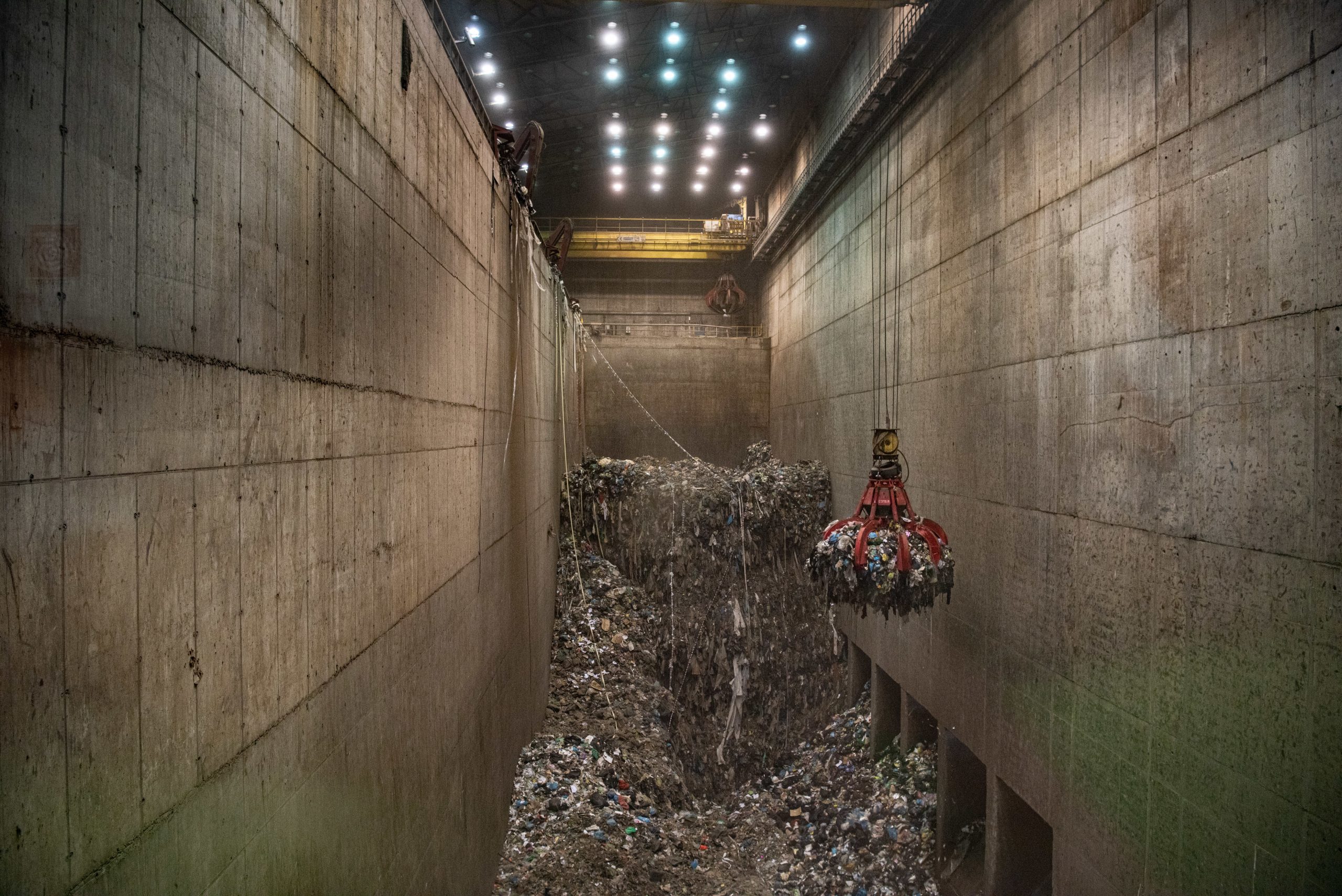
Scottish Government has “lost control” on incineration
Climate campaigners have said the Scottish Government has “lost control” of incineration after new statistics showed a 15.4% increase in waste burned in one year.
The figures, published by SEPA, show a huge surge in waste burned from 2022 to 2023, a bigger rise than the previous three years combined.
The data also shows that Scottish household recycling rates have remained at a standstill, moving from 43.3% to 43.5% from 2022 to 2023. These figures have flatlined for a decade, despite a previous commitment from the Scottish Government to reach 60% by 2020.
The Scottish Government introduced a ban on new incinerators in 2022 but failed to close important loopholes. Since the ban, incinerators have been switched on in Aberdeen and Grangemouth and construction has begun in Fife, Irvine, Glenfarg and South Clyde.
In June 2024, Aberdeenshire Council supported a developer to maintain their planning permission for the Inverurie incinerator, bypassing the ban, despite the Aberdeen incinerator being only 17 miles away.
The ban does not cover changes to capacity at existing incinerators, creating another loophole. Scotland’s largest incinerator, Viridor’s Energy Recovery Facility in Dunbar was awarded a permitted capacity increase of 20% from SEPA in July 2023, a year after the moratorium was introduced.
When the Scottish Government introduced the mortarium on incinerators, it stated that this was done to limit capacity. However, incineration capacity has increase by 215,000 tonnes already. Before 2018, Scotland had just two incinerators. Ten years later, in 2028 Scotland could have 17 incinerators, if all plants with planning permission are built.
Kim Pratt, Circular Economy campaigner at Friends of the Earth Scotland said:
“It’s clear that the Scottish Government has lost control of incineration in Scotland. It’s meaningless to ban new incinerators if you’re not going to make sure that it actually stops more waste being burnt.
“Runaway incineration rates are causing climate-wrecking emissions and air pollution across Scotland. Incinerator companies are now racing to develop new plants. The Scottish Government has the power to prevent more incinerators being turned on in Scotland and it needs to close the loophole in its own incinerator ban now.
“The Scottish Government is failing to make progress with household recycling, and Scotland has fallen well behind our neighbours. Getting a hold on this incineration problem is crucial to improve recycling rates. As people in Scotland are doing their best to make sure we are recycling all the materials we can, the systems need to be in place to make this work.”
John Young, Dovedale Action Group which campaigned to stop a new incinerator from being built in Lanarkshire, said:
“With an increasing drive towards burning waste through incineration with around a dozen new incinerators planned in Scotland, it is disappointing that no action has been taken to stop the issuing of operating permits through SEPA until an incineration cap is implemented. This is despite increasing greenhouse gas emissions and reducing recycling statistics, as well as a declared Climate Emergency.
“Despite the Scottish Governments commitment to ban no new incinerators, there are more in the planning process approved prior to national review, or in construction than exist in Scotland presently. This is unacceptable in respect of the impact on climate change and the impact on communities across Scotland.”
Incineration of waste is expensive, emits harmful pollution, contributes to worsening climate change and prevents effective reuse and recycling. Over half of what is thrown away in Scotland could have been recycled so incineration impacts recycling efforts too.
Shlomo Dowen, UK Without Incineration Network (UKWIN), said:
“Incineration has proven to be a barrier to Scotland’s progress to a more circular economy. Recent BBC coverage has also shown how energy produced through waste incineration to be UK’s dirtiest form of energy. Scotland needs to focus on an incineration exit strategy that sets out how incineration will be progressively reduced year on year. This new data indicates that the Scottish Government needs to act immediately to put Scotland back on course.”
SEPA waste data: Waste data for Scotland | Scottish Environment Protection Agency (SEPA)
Briefing on incineration loopholes: Briefing paper on how Scottish Government can close incineration loopholes – Friends of the Earth Scotland (foe.scot)
BBC investigation on incineration: Burning household rubbish now UK’s dirtiest form of power, BBC finds – BBC News
Scottish Government press release on ban to limit capacity: Putting limits on incineration capacity – gov.scot (www.gov.scot)
